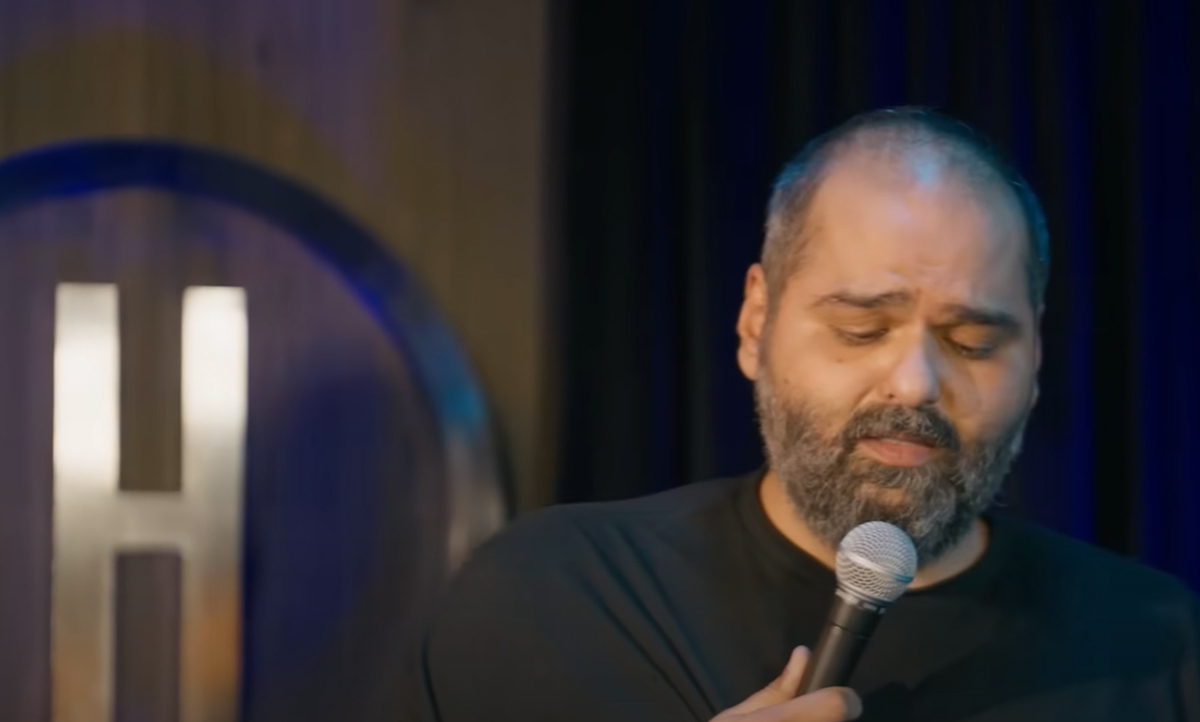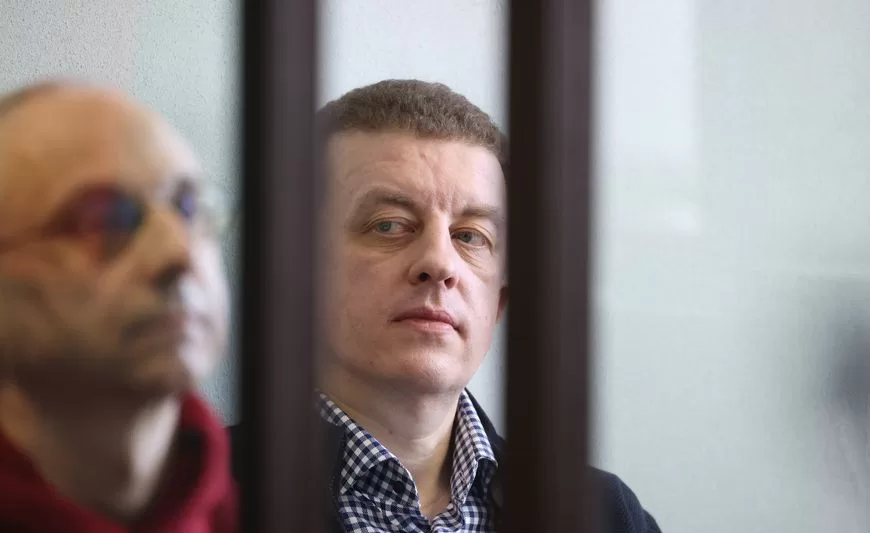On the eve of 23 March 2025, hours after stand-up comedian Kunal Kamra released a video titled Naya Bharat (New India), dozens of members of a right-wing ruling party of Maharashtra barged in and vandalised the Habitat comedy club where the show was performed.
The workers, who represented a faction of Shiv Sena, a right-wing Marathi regional political party in India, alleged that the comedian made fun of their party leader and the deputy Chief Minister of Maharashtra, Eknath Shinde.
Kamra, in his show, sang a song referencing the word gaddar or traitor. The song did not name anyone directly, but its lyrics referenced Shinde’s separation from his party in 2022 and allying with Prime Minister Narendra Modi’s ruling Bharatiya Janata Party (BJP).
Shiv Sena spokesperson Krishna Hegde urged Mumbai police to arrest Kamra, lock him up behind bars, and open a case against him as his jokes insulted the people of Maharashtra.
After the event, a First Information Report (which initiates a potential criminal case) was filed against Kamra. He was later granted bail. The police also arrested a number of Shiv Sena party members who were also granted bail by a Mumbai court.
The attack on Kamra is just the latest instance of comedians in India being targeted and penalised simply for telling jokes and using satire. More broadly, it reflects an ongoing assault on freedom of speech, especially when it challenges the moral framework upheld by dominant political groups.
Responding to the threats against him, Kamra issued a statement saying, “Attacking a venue for a comedian’s words is as senseless as overturning a lorry carrying tomatoes, because you didn’t like the butter chicken you were served.”
He added, “I don’t fear this mob & I will not be hiding hide under my bed, waiting for this to die down.”
The incident at the popular Habitat club comes amid a spate of attacks against comedians in India. All highlight that while their humour may push boundaries or tackle bold themes for their audience, there’s only so much room for expression in a space where jokes are heavily scrutinised and the repercussions for comedians are severe.
Radhika Vaz, a stand-up comedian, highlights that freedom of expression can’t have any limits and there is an urgent need to protect it.
“We are at the lowest ebb. Comedians do not hold the same power that a politician does in terms of being able to influence police and judicial movement. It is not a fair fight. This is truly a David and Goliath situation, and the Goliaths should all be ashamed,” she said.
Vaz points out that censorship is not new to India. Writers, filmmakers, artists, and journalists have long been muffled, she says, but what has changed is the public complicity. “We, the public, should be held responsible because we only care when it is our team that is being censored. Freedom of expression can’t have any limits, and it certainly can’t be convenient.”
Growing censorship
What happened with Kamra is not just an isolated incident in the Indian stand-up comedy scene. Just a few weeks back, Samay Raina, who hosted a show titled India’s Got Latent, which featured a different set of judges in every episode, also faced severe backlash. The show has a huge audience in India and is infamous for its risqué humour.
The joke, made by one of the judges and India’s famous podcaster Ranveer Allahabadia, otherwise known as BeerBiceps, led to filing of multiple police reports against him and other show judges, a visit by Mumbai police to Allahabadia’s house, and also the removal of the video from YouTube based on a request by a member of India’s National Human Rights Commission.
Back in 2021, comedians Kunal Kamra and Munawar Faruqui were forced to cancel several shows across different cities after right-wing groups threatened violence and state authorities declined to provide security. That same year, Vir Das faced political backlash for his satirical poem Two Indias, performed during a show in the USA, which critics accused of tarnishing India’s reputation abroad.
Earlier in 2021, Munawar Faruqui was arrested in Indore before even performing, accused of making offensive jokes about Hindu Gods.
In 2020, Agrima Joshua became the target of death and rape threats after a stand-up video surfaced where she was alleged to have mocked the revered 17th century ruler Chhatrapati Shivaji. In reality, Joshua’s jokes had critiqued exaggerated claims about a planned Shivaji statue on Quora, not the historical figure himself, though she was well within her rights in either case.
Going back further, in 2016, Tanmay Bhat from Mumbai-based comedy collective All India Bakchod (AIB) drew criticism after a Snapchat spoof involving Indian legends Lata Mangeshkar and Sachin Tendulkar, which offended some sections of the public. The previous year, AIB had faced a barrage of FIRs for a roast event, where the use of profanity was labelled a threat to Indian cultural values.
Manjeet Sarkar, a stand-up comedian, says he never feels safe on stage when he performs political or critical material.
“It’s not about Kunal Kumra, it was always there. Journalists are doing the story now because the Kunal Kamra situation is happening. For comedians like me, who aren’t in the same position as Kunal Kamra, we have felt this for a long time,” he said.
He added that stand-up comedy as an art form talks about the current realities of the country.
“If a particular democracy is doing well, the jokes would reflect that. If not, they’ll reflect what it is. Comedians don’t do it because they want to be activists; it is because they are being true to the art,” he said.
A shrinking space for dissent
The situation for comedians mirrors the broader erosion of democratic space in India. According to a recent paper published in the Journal of Asian and African Studies by Abdul Fahad and Siti Mustafa, stand-up comedy has increasingly stepped into the role that traditional mainstream media once occupied: challenging the government, critiquing societal norms, and raising uncomfortable questions.
In a media landscape where many outlets now function as “government public relations” rather than independent watchdogs, comedians like Kunal Kamra, Vir Das, and Varun Grover have become some of the few remaining critical voices. The paper notes that these comedians “use humour to address sensitive topics, empowering audiences to engage with critical political issues,” making comedy a powerful tool for free expression beyond the reach of traditional media censorship.
But this visibility comes at a cost. As Fahad and Mustafa document, comedians in India today face serious risks: legal harassment, threats of violence, show cancellations, and loss of income.
Threats and economic retaliation are not just random acts; they are often orchestrated. Government supporters and political loyalists regularly organise social media campaigns to discredit and intimidate comedians. Sarkar highlights how platforms, too, play a role in censorship: “Social media platforms shadow-ban people like me. If they put people in jail, it’ll be hard to reach audiences, right?”
Meanwhile, the government is using incidents like Kamra’s to justify further tightening of digital spaces under the guise of “protection”. The new Digital Personal Data Protection law, critics argue, could make online dissent even riskier by giving authorities broader powers to monitor and restrict speech.
The broader message is clear: artists who mock, critique, or even simply question dominant narratives do so at their own peril.
Hope, resistance, and an uncertain future
Despite the risks, comedians are not giving up. They continue to find ways to speak, sometimes more subtly, sometimes more defiantly, pushing back against an environment that increasingly demands silence.
“I guess I look at countries with better standards and hope that by chipping away we can one day walk amongst them,” Vaz said, adding with a wry laugh, “maybe in 100 years.”
For Sarkar, change must come from those with privilege. “The most privileged in our society should push back, because they can afford to,” he said. “Until there is a shift in their awareness, it’s going to keep going in this direction. It will eventually impact them too – and that’ll be the funniest moment.”
The research by Fahad and Mustafa also underlines this need for solidarity. They suggest that alliances among comedians, other artists, and civil society can create pockets of resistance that protect free expression. Comedy, after all, thrives on community, and its survival may depend on collective defence against growing censorship.
In the meantime, the stakes for telling a joke in India have never been higher. What was once considered harmless or even patriotic satire is now treated as sedition in all but name. “We cannot attack or accost any journalist for what they’ve said,” Vaz warned. “We cannot attack or accost a comedian for a joke they made. Both deserve to be protected by the law of the country.”
As India’s democracy becomes increasing authoritarianism, comedians find themselves unlikely warriors for free speech. Armed only with a mic and a sharp sense of humour, they continue to stand on stage and say the things others dare not, even as the space to laugh – and to dissent – keeps shrinking.
The Winter 2023 issue of Index on Censorship, Having the last laugh, looked at how comedy is being censored around the world. Explore the issue now.






